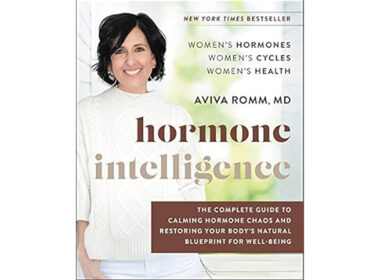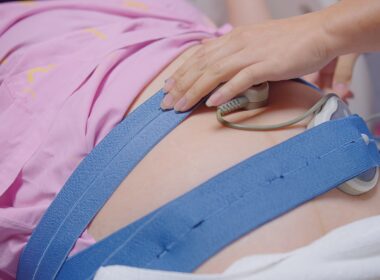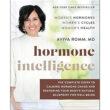Earlier this week, I breastfed my baby, got her ready for bed, and set out to write this article. And then… nothing. I mostly just stared at my computer screen for the better part of an hour struggling to string words together. I felt tired, lacked focus and concentration, and felt annoyed that I couldn’t make any progress. It wasn’t until I gave up on writing for the day and had a snack that I suddenly realized how hungry I was, and (surprise, surprise), suddenly felt much better. The irony of being unable to work on this particular article because I was neglecting my own postpartum nutritional needs was not lost on me, and research indicates that postpartum nutrition is so much more than just remembering to consume extra calories for healing and breastfeeding. Specific micronutrients have been shown to play an important role in brain function and mental health and may help to alleviate symptoms of postpartum depression in women deficient in these nutrients.
What we know about nutrition and depression
It’s no secret that the foods we eat impact our physical health. However, the link between nutrition and mental health may be just as important, even if it seems less intuitive. Certain vitamins and minerals are essential to different bodily functions, and doctors have known for a long time about the consequences of specific vitamin deficiencies. For example, low vitamin A can lead to eye problems. Low vitamin D can cause rickets. Lack of iron causes anemia. Sailors at sea for long periods of time without access to fruits and vegetables (a significant source of vitamin C) sometimes succumbed to scurvy.
Similarly, our brains also require certain nutrients to produce appropriate neurotransmitter levels and function well. Some nutrients that seem especially important for reducing symptoms of postpartum depression are folate, omega-3 fatty acids, and vitamin D. Here’s what the data says about each of these nutrients and their relationship to depression.
Some nutrients that seem especially important for reducing symptoms of postpartum depression are folate, omega-3 fatty acids, and vitamin D.
Folate deficiency and postpartum depression
In an observational, longitudinal study (i.e., where women self-reported answers to questions over a long period of time) involving 6,800 British women, supplementing with folic acid during pregnancy was correlated with fewer depressive symptoms between 8 and 21 months postpartum. (Folic acid is the synthetic form of folate.) This was especially true for women with a genetic mutation that makes folate deficiency more likely. Interestingly, folic acid supplementation did not seem to make a difference in depression symptoms during pregnancy or more immediately postpartum [1].
The women’s breastfeeding status was not included in the study, but, since breast milk contains folate, women who don’t get enough folate in their diets may become gradually more folate deficient the longer they breastfeed. Folate is necessary for producing neurotransmitters and creating DNA and RNA, and is considered necessary for normal cognitive function. It can be found in fruit, legumes, and leafy greens.
Omega-3 fatty acid supplementation for depression
A 2023 randomized trial had three arms: 1) investigating treating depression symptoms with omega-3 fatty acid supplementation; 2) treating depression with a single agent antidepressant and 3) treating depression with a single agent antidepressant in combination with omega-3 fatty acid supplementation. Researchers found that patients who received both antidepressants and an omega-3 supplement had significantly lower depression symptom scores than patients who only received an antidepressant or who only received the omega-3 supplement. Interestingly, every treatment group had lower depression symptom scores at each follow-up visit, including the patients who only received omega-3s as their treatment.
This study, though not specific to postpartum depression, included 165 participants, both men and women, in their 30s and 40s who had been diagnosed with mild to moderate depression [2]. Fatty acids are an important component of the membranes of nerve cells, and omega-3s have long been considered an important compound for brain health. Fish is an important source of omega-3s.
Vitamin D deficiency and postpartum depression
In a review investigating the connection between vitamin D deficiency and postpartum depression, reviewers identified five studies that looked at this connection and suggested that vitamin D supplements “may play a significant role in the recovery of women with PPD.” The reviewers noted that it is still not understood how vitamin D helps to alleviate depression and that more research is needed, especially since there is currently a lack of randomized control trials that address this question [3]. However, sun exposure is associated with improved mental health, and the fact that sunlight is necessary for vitamin D production is part of the reason why!
A surprising study on food and mood
A 2022 study explored the impact of switching to a Mediterranean diet on depression symptoms in young men. The experimental group received coaching on constructing a diet rich in whole grains, fruits, vegetables, legumes, fish, and olive oil. In contrast, the control group received befriending therapy, in which they were paired with a volunteer to provide emotional support.
Both groups were assessed using the Beck Depression Inventory at the beginning of the study and after 12 weeks. The Mediterranean diet group showed a decrease in scores nearly twice as large as the befriending therapy group. The results suggest that individuals consuming more vegetables experienced significantly fewer depression symptoms compared to those who received emotional support [4]. Wait… what!? That’s right, the people eating more veggies had significantly fewer symptoms than the people with someone supportive to talk with. We might take this study to indicate that having a nutritional deficiency is a bit like having a cold: you feel bad when you have it, and while there are things that might help to cheer you up in the midst of it, you still don’t feel like yourself until you’ve fully recovered from it.
The Mediterranean diet is also associated with decreased inflammation, and we are starting to understand that inflammation is connected to both mental and physical health.
An important note is that this study exclusively recruited college-aged men, and research that specifically aims to help postpartum women is still needed.
Make good nutrition part of your postpartum self-care
Folate, omega-3 fatty acids, and vitamin D are all commonly supplemented during pregnancy. Diet recommendations for pregnancy also generally include drinking lots of water, getting plenty of protein, and increasing fruits and veggies. When I was pregnant, I felt very motivated to follow the nutrition plan I made with my midwife, but I also had the time and accountability to make that happen. Once my baby made her debut, it became much more difficult to keep up these healthy habits while taking care of an infant and my older children. Poor nutrition may contribute to depressive symptoms, but it may also go hand-in-hand with other postpartum depression risk factors like lack of support and financial problems. Furthermore, depression can make it more difficult to perform everyday tasks like preparing meals, further exacerbating symptoms. Nutrition is an important piece of the puzzle, but postpartum depression remains a puzzle nonetheless, and other factors, including hormonal factors, like progesterone levels, may make more of a difference in symptoms for some women than in others.
Although the postpartum period can be difficult and tiring, focus on small steps like continuing to take a prenatal vitamin, spending time outside, and trying some recommendations for fourth trimester nutrition, such as eating stews and soups that have lots of meat and vegetables. While the research available on treating postpartum depression with nutrition is still small, what is available suggests that getting key nutrients are necessary for the brain to work well. Even if these nutrients are not sufficient to alleviate depression symptoms, giving your brain the tools it needs to function well may make other interventions more effective than they would be otherwise.
While the research available on treating postpartum depression with nutrition is still small, what is available suggests that getting key nutrients are necessary for the brain to work well.










